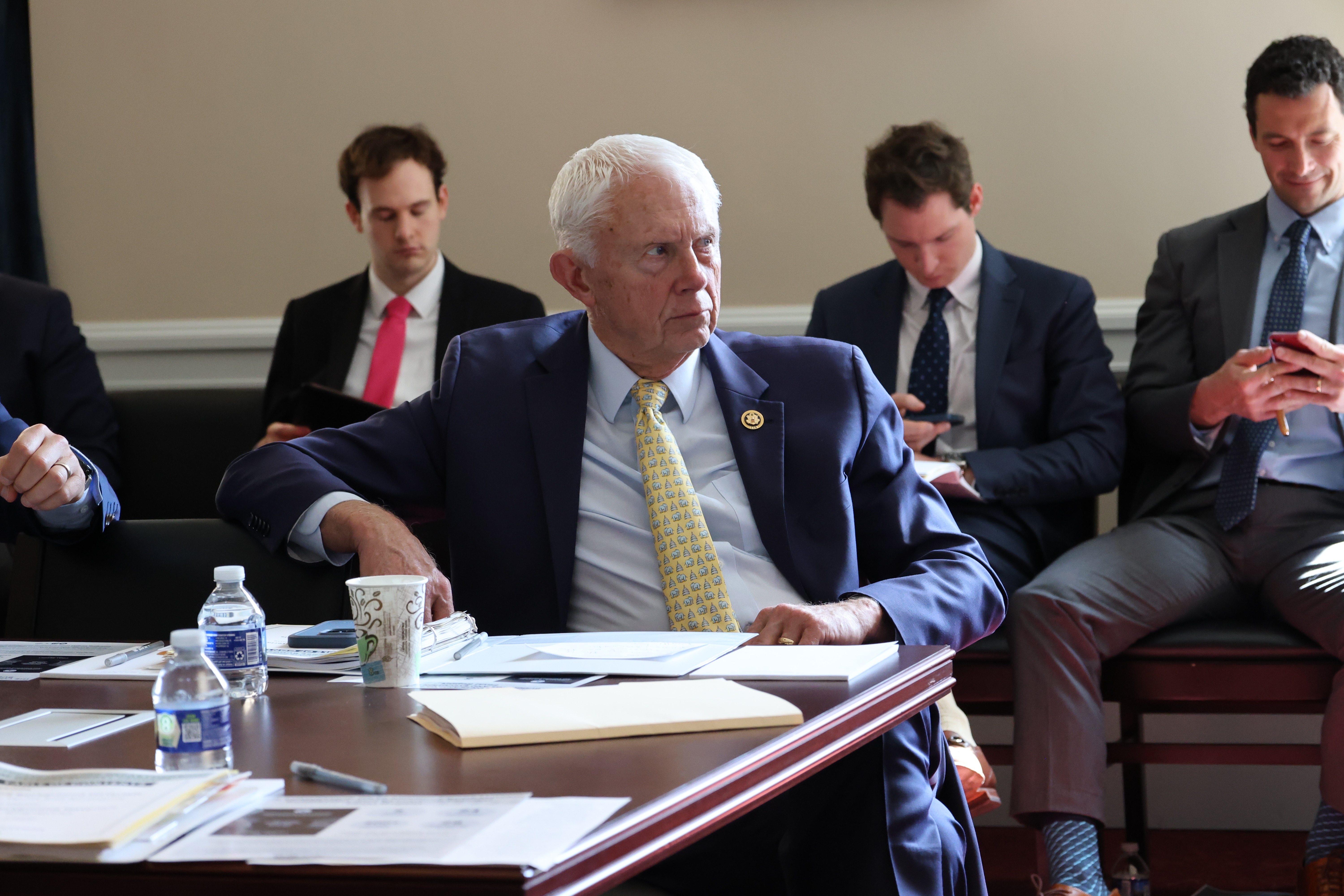House Budget Republicans Seek to Streamline U.S. Defense Spending and Budgeting Process with DoD Watchdog
WASHINGTON, D.C. – Today, House Budget Committee Members, led by House Budget Committee Oversight Task Force Chair Jack Bergman (R-MI), convened a roundtable discussion focused on streamlining the budgeting process for the Department of Defense (DoD) with the Commission on Planning, Programming, Budgeting, and Execution (PPBE) Reform.

Congress established the PPBE Commission on a bipartisan basis—via section 1004 of the “Fiscal Year 2022 National Defense Authorization Act” (NDAA)—to conduct a thorough evaluation and provide recommendations designed to ensure prudent fiscal stewardship within DoD's budgeting system and processes.
The PPBE Commission released their final report in March 2024 with 28 reform suggestions that focus on five key critical areas for reform:
- Improve the Alignment of Budgets to Strategy
- Foster Innovation and Adaptability
- Strengthen Relationships Between DoD and Congress
- Modernize Business Systems and Data Analytics
- Strengthen the Capability of the Resourcing Workforce.
In January 2024, the House Budget Committee sent a joint letter—from Chairman Jodey Arrington (R-TX), Budget Oversight Task Force Chair Jack Bergman (R-MI), and Budget Process Reform Task Force Chair Rudy Yakym (R-IN)—to the PPBE Commission with the goal of creating an open line of communication to improve Department of Defense (DoD) budget and their budget process.
Chairman Arrington on Today's Roundtable:
House Budget Committee Chairman Jodey Arrington (R-TX) on the importance of streamlining the D0D budgeting process:
“When America is strong, the world is safe — and in an increasingly dangerous and unstable world, it has never been more important for our military to project strength.
The Department of Defense is an over $800 billion agency with assets totaling well over $3.8 trillion. Yet, it is burdened by an outdated budgeting process, eroded trust between Congress and the Department, and antiquated accounting and data systems that threaten American military readiness and lethality.
I look forward to continuing to work with the Commission on Planning, Programming, Budgeting, and Execution Reform and House Armed Services Committee Chairman Mike Rogers to bolster our national security through fiscal responsibility.”
Oversight Task Force Chair Bergman on Today's Roundtable:
House Budget Committee Oversight Task Force Chair Bergman (R-MI) on the importance of streamlining the D0D budgeting process:
“As America’s foreign adversaries continue to grow and evolve at a rapid pace, so too must our ability to budget and plan for emerging threats to our national security. Unfortunately, the Defense Department’s sixty-four-year-old budgeting system is dangerously ill-equipped for this critical task, and the need for reform has never been more apparent. I appreciate the work that the Commission on Planning, Programming, Budgeting and Execution Reform has done up to this point in making recommendations on how to modernize and streamline the defense budgeting process, and I look forward to continued collaboration with its members.”
The Purpose of the PPBE Commission:
On March 11, 2024, the Biden Administration submitted their proposed budget for Fiscal Year (FY) 2025. President Biden’s FY25 budget requested a 1 percent increase to DoD’s budget, totaling $849.8 billion, for the Department of Defense (DoD).
The size and scope of DoD’s national security-related budget and spending, includes—but is not limited to:
- A budget totaling more than $800 billion.
- Assets totaling $3.8 trillion, liabilities over $4 trillion.
- A workforce of 3.4 million service members and civilians.
- A presence in 160 nations at nearly 5,000 sites.
The findings included in the PPBE Commission's final report outlines the spectrum of budget and spending issues needing to be addressed by Congress and further underscores the pressing need for increased transparency and oversight that will modernize an antiquated budgeting process adopted by DoD.
By aligning resources with strategic imperatives and expediting the efficiency of the DoD’s budgeting process, the Commission's recommendations promise to empower American warfighters and safeguard national interests.
The PPBE Commission highlights FIVE key areas for reform, emphasizing the critical need to:
- Improve alignment of budgets to strategy.
- Foster innovation and adaptability.
- Strengthen relationships between DoD and Congress.
- Modernize business systems and data analytics.
- Enhance the capability of the resourcing workforce.
House Budget Committee Letter to PPBE:
The House Budget Committee’s member-driven roundtable follows a letter that Chairman Arrington, Oversight Task Force Chair Bergman, and Budget Process Reform Task Force Chair Rudy Yakym (R-IN) sent to the PPBE Commission in January 2024.
The letter outlines the three simple goals that the Budget Committee and Task Forces believe will be accomplished by the work of the PPBE Commission:
- Rebuild trust between the DoD and Congress.
- Seek to better educate and inform the American people about national security and associated costs.
- Assist Congress in improving and streamlining the budget for U.S. national security.
The Bottom Line:
As the nation confronts the consequences of our ever-mounting national debt, totaling more than $34.4 trillion and counting, Congress must strive to reexamine all agency processes and funding streams that could curb wasteful spending and inefficiencies.
The findings included in the PPBE Commission's final report will ensure DoD’s agility, effectiveness, and accountability, thereby safeguarding the joint interests of the American taxpayer and our ability to provide for the common defense.
The PPBE Commission’s transformative recommendations will make the DoD stronger, more agile, and better prepared to confront the rapidly evolving threat environment the U.S. faces on a daily basis.
The newfound partnership between the House Budget Committee Republicans and the PPBE Commission signifies the first step in achieving a mutually shared goal of fostering a more constructive and collaborative fiscal relationship between Congress and the Department of Defense.


